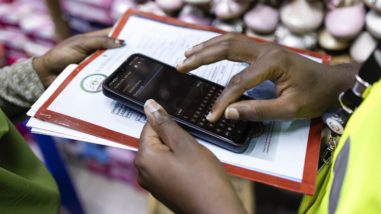As the dust settles from the United Nations Third International Conference on Financing for Development, it’s time for development professionals to celebrate the good things that were announced — for example, the announcement that country, civil society and private foundation champions have committed to forming a Global Partnership for Sustainable Development Data — and get back to the hard work of figuring out how to turn the “announceables” into tangibles. Fortunately, my fellow data revolutionaries at Open Data Watch have produced FIVE new resources to help us out:
Examples of Data Impacts Case Studies from the Data Revolution: http://www.dataimpacts.org/
- The Data Impacts project. This is a must read for anyone who is interested in how data actually gets used to improve our lives. The site has 16 case studies of examples when data — traditional and new — have been used to change policy and practice and one cautionary case where the data was available but was not used with tragic results. Not only are the case studies great, but the report Data Revolutions- How Information Turns into Impact pulls together valuable lessons for data revolutionaries thinking about how to make data more useable.
- Data Revolution FAQs. As a data revolutionary myself, I often find myself trying to explain what the data revolution is to people. Is it about big data? Official statistics? Open data? All of the above? How can I get involved? Now we have a handy guide — the Data Revolution FAQs — that explains not only what the data revolution is, but also what role we can all play in making it happen.
- Partnerships and Financing for Statistics. As we consider how best to support statistical capacity building, it makes sense that we should learn from the lessons of the past. In Partnerships and Financing for Statistics: Lessons Learned from Recent Evaluations, Open Data Watch summarizes the lessons learned from 27 evaluations of statistical capacity programs from 2000-2014, looking at national, regional and international programs. The lessons and recommendations won’t likely be new ideas, but are the things that we need to be constantly reminded of and to figure out how to do better, such as:
- Ensuring country ownership and aligning with country priorities;
- Meaningfully involving developing-country stakeholders in the design of international programs; and
- Coordinating donor and international organization supports and providing predictable support.
Notable for data revolutionaries are the report’s lessons on the importance of focusing on data users and their needs, so that efforts to improve data lead to more informed, hopefully better, decisions. The report also finds greater impact when the introduction of new methods or technology is paired with technical support and advice to those countries that want to adopt them. Open Data Watch tops it off with good recommendations for designing programs to strengthen national statistics systems and build statistical capacity, including building evaluations in from the beginning.
Aid for Statistics. A great companion piece to the lessons learned is ODW’s inventory of what funds are already out there in Aid for Statistics: An Inventory of Financial Instruments. The inventory estimates that $143 million per year in aid goes to support statistics through over 30 instruments. Despite the number of vehicles, and the size of the funding, the report identifies several gaps that need to be filled, including the need to collect more gender-disaggregated data, increase data access and use, improve data literacy and support more data innovation. The World Bank announced at the Financing for Development conference that they will be launching a new trust fund for data innovation to fill this last gap. The Aid for Statistics report recommends that donors pool funds to provide more stable and predictable support for statistics and that the funds themselves work to harmonize their efforts and encourage learning. There is also a need for donors to make the data on the aid they give for statistics more open.
- Data for Development. Finally, there is Data for Development: An Action Plan to Finance the Data Revolution for Sustainable Development, co-written with the UN Sustainable Development Solutions Network. This report recommends actions to be taken globally and nationally to make the data revolution for sustainable development a reality. The report lays out the core components of an effective national statistical system, including recommending an expanded toolkit of data instruments for measuring the Sustainable Development Goals (SDGs). They estimate that $1 billion is needed each year to enable the 77 low-income countries to effectively monitor the SDGs.
There are many things that still need to be figured out as we turn the data revolution from idea to reality, but these new resources give us more… well, data… on how to do this well.



